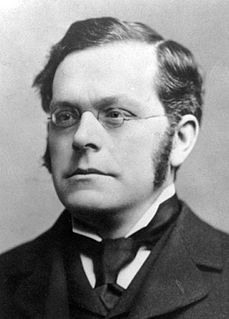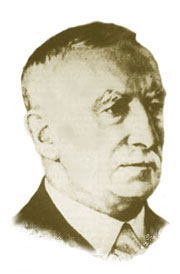A Quote by Horace
He who studies to imitate the poet Pindar, O Julius, relies on artificial wings fastened on with wax, and is sure to give his name to a glassy sea.
Related Quotes
The most beautiful conception of immortality of which I know, and certainly one that by contrast shows the utter vulgarity of Christian ideas, is set forth in Pindar's second Olympian: after three or six lives in which a man has lived with strict justice and perfect integrity, he passes beyond the tower of Cronus to the fair realm that cannot be reached by land or sea, where gentle breezes from a placid ocean blow forever on the fields of asphodel. For a description, see Pindar. If the beauty of great poetry can commend a religion, here you have it.
One of the surest tests of the superiority or inferiority of a poet is the way in which a poet borrows. Immature poets imitate mature poets steal bad poets deface what they take and good poets make it into something better or at least something different. The good poet welds his theft into a whole of feeling which is unique utterly different than that from which it is torn the bad poet throws it into something which has no cohesion. A good poet will usually borrow from authors remote in time or alien in language or diverse in interest.
Listen, O drop, give yourself up without regret, and in exchange gain the Ocean. Listen, O drop, bestow upon yourself this honor, and in the arms of the Sea be secure. Who indeed should be so fortunate? An Ocean wooing a drop! In God's name, in God's name, sell and buy at once! Give a drop, and take this Sea full of pearls.
There is more evidence to prove that saltness [of the sea] is due to the admixture of some substance, besides that which we have adduced. Make a vessel of wax and put it in the sea, fastening its mouth in such a way as to prevent any water getting in. Then the water that percolates through the wax sides of the vessel is sweet, the earthy stuff, the admixture of which makes the water salt, being separated off as it were by a filter.
As the innocent infant relies upon the mother for sustenance, so the innocent wanderer, following his native compassion and bliss, relies upon the natural intelligence of life to sustain him. There are various Ways. There is the Way of salvation by the law of Buddha, the Way of Confucius governing the Way of learning, the Way of healing as a doctor, as a poet teaching the Way of Waka, tea, archery, and many arts and skills. Each man practices as he feels inclined.
I have made a very rude translation of the Seven against Thebes, and Pindar too I have looked at, and wish he was better worth translating. I believe even the best things are not equal to their fame. Perhaps it would be better to translate fame itself,--or is not that what the poets themselves do? However, I have not done with Pindar yet.
When heaven doth weep, doth not the earth o'erflow? If the winds rage, doth not the sea wax mad, Threatening the welkin with his big-swoln face? And wilt thou have a reason for this coil? I am the sea; hark, how her sighs do blow! She is the weeping welkin, I the earth: Then must my sea be moved with her sighs; Then must my earth with her continual tears Become a deluge, overflow'd and drown'd: For why my bowels cannot hide her woes, But like a drunkard must I vomit them. Then give me leave, for losers will have leave To ease their stomachs with their bitter tongues.



































